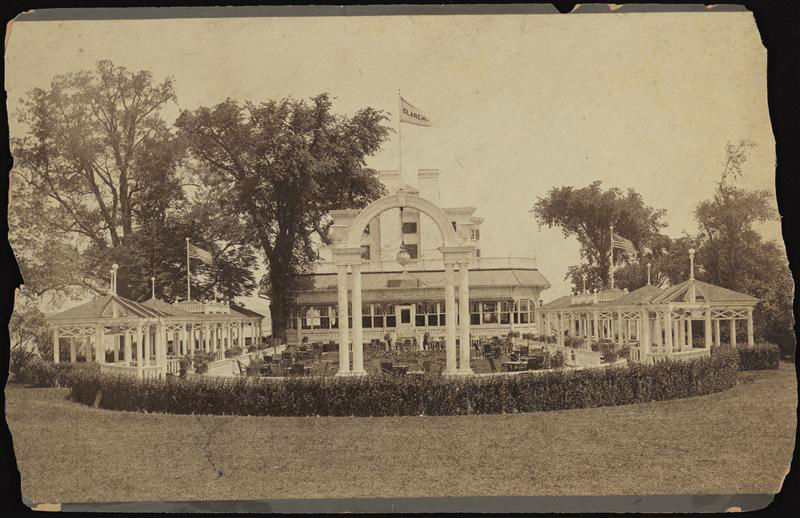
The City and its agencies are still falling abysmally short of goals to contract with diverse businesses for goods and services from Harlem to Hollis.
This is according to the Comptroller’s Annual Report on M/WBE Procurement.
In Fiscal Year 2022, Black-owned vendors received under 2% of the value of City contracts, while Latino-owned firms fared little better. In total, just 5.2% of the value of all new City contracts and purchase orders registered in Fiscal Year 2022 went to certified Minority and Women-Owned Businesses (M/WBEs).
Despite years of laws and programs designed to increase City contracting with M/WBEs, M/WBE-certified businesses accounted for still only 15.9% of the narrower universe of City contracts and purchase orders subject to M/WBE participation goals set by Local Law 174 (LL 174). This percentage actually fell slightly, from 16.3% in FY20 and 16.5% in FY21. LL 174 mandates elected offices and mayoral agencies set goals for the number of contracts with M/WBEs for standardized, professional, and construction services as well as goods up to $1 million.
“For far too long, the City of New York has failed to spend public dollars with Black and brown-owned businesses,” said New York City Comptroller Brad Lander. “The Adams Administration has prioritized changing that. The data presented here tell the detailed, abysmal story of where things stand, of how far we have to go, and of a few bright spots. We offer detailed recommendations for ensuring M/WBE’s access to higher-value contracts, expanding the use of discretionary award methods, reforming the subcontracting process, and getting vendors paid on time. Increasing contracting and spending with businesses owned by people of color and women is critical to building a more equal city.”
The report snapshots agency rates and compares M/WBE LL 174-governed participation rates by industry. The Department of Small Business Services (90.1%), Department of Cultural Affairs (85.2%), and Department of Buildings (79.6%) had the highest share of M/WBE contract value. The Department of Small Business Services, Department of Correction, and the Office of the Comptroller were the three most improved agencies increasing their share of M/WBE contract value from FY20 to FY22. Meanwhile, procurements for Construction and Standard Services lagged behind those for Goods and Professional Services in meeting M/WBE procurement goals.
The Comptroller’s Annual Report on M/WBE Procurement (previously known as Making the Grade) provides a comprehensive review of contract registration data to analyze the City and its agencies’ performance in awarding M/WBEs contracts based on procurement method, dollar value, and industry.
Key findings of the report included:
- Black, Latino, Asian American women-owned, and Native American-owned enterprises each represent less than 2% of the value of all FY 22 registered contracts subject to LL174 participation goals. The City awarded over 70% of the total value of FY 22 M/WBE contracts to firms owned by white women or Asian American men.
- Women-owned firms receive far less than their share of the counts of registered contracts and purchase orders (POs). Male-owned MBEs account for more than double (11,713) the total number of contracts and POs registered to women-owned M/WBEs (5,338, including white WBEs).
- While many City agencies increased the number of contracts awarded to M/WBEs, the average value of a new contract registered in FY22 to an M/WBE ($670,000) was nearly eight times smaller than the average awarded to a non-certified firm ($5.01 million).
- In FY 22, fewer than 18% of City-certified M/WBEs registered a new contract, purchase order or approved subcontract with the City.
- Subcontracting and M/WBE compliance processes are paper-based, opaque, and ineffective. The current M/WBE compliance mechanisms are also too reliant on self-reporting from City agencies and prime vendors as well as inputted into outdated or underutilized systems, which limits accountability as well as the City’s ability to meet the requirements of the M/WBE program.
- When M/WBEs do receive contract awards, they are not paid on time. Approximately 55% of M/WBE contracts registered in FY22 were retroactive, worse than the citywide rate of approximately 52%. This is a particular challenge for smaller firms without sufficient working capital to endure long wait times for payment.
Rather than reduce each agency to a single letter grade, this year’s report provides a more detailed look at agency procurement, including both contract registration and spending, as well as utilization of discretionary procurement methods. The goal is to pinpoint procedural roadblocks and identify specific shortcomings, in order to support the Adams Administration’s goal of doubling the rate of M/WBE procurement.
In his 2023 State of the City address, Mayor Eric Adams announcement plans to double the rate of the City’s current M/WBE contracts, with ambitious goals through FY26 and FY30. He subsequently appointed Michael Garner, formerly Chief Diversity Officer at the MTA, as the City’s first Chief Business Diversity Officer of the Mayor’s Office of Minority and Women-Owned Business Enterprises to help fulfill these goals.
“Despite promises of economic equity by past administrations, many of our city’s minority and women-owned business owners were still placed on the back burner and denied the ability to work with the city on different initiatives,” said New York City Mayor Eric Adams. “Earlier this year, I established ambitious new OneNYC goals for total M/WBE spending and signed an executive order — to address the ‘disparity within the disparity’ and to appoint Michael Garner as chief business diversity officer of the Mayor’s Office of Minority and Women-owned Business Enterprises — all in an effort to truly build out support systems and create new opportunities for M/WBEs in New York City. And while more than a quarter of eligible contracts were awarded to M/WBE firms in the first three-quarters of this administration, we recognize there is much more we can do to build a more equitable city. That’s why we’ve already made clear to city agencies that they will be required to provide more regular updates on how they are progressing to meet their M/WBE goals. We appreciate the recommendations in today’s report, and still recognize we have a long way to go on the road to increasing access for groups that have been persistently and negatively impacted by procurement inequities.”
The Comptroller’s report offers detailed recommendations to address the perennial challenges to increasing the share and value of City contracts with M/WBEs included:
- Increase M/WBE access to higher value contracts through competitive procurements, including through greater use of prequalified lists and “best value” procurement.
- Bolster agencies’ utilization of existing discretionary procurement methods. This includes raising the threshold for the M/WBE Noncompetitive Small Purchase (NCSP) method and improving the use of discretionary micropurchases and small purchases.
- Reform the subcontracting process and incorporate it into PASSPort for greater accountability and online transparency to meet M/WBE goals.
- Provide stronger tools to City agencies that make M/WBE data more accessible, improve the quality of data in the system, and maintain a sufficient number of qualified M/WBEs to compete for City-procured goods and services.
- Improve the timeliness of City contract registration. The City must remain committed to prioritizing needed reforms proposed by the Capital Process Task Force and Joint Task Force to Get Nonprofits Paid On Time to deliver faster and more cost-effective goods and services to New Yorkers in a way that increases investments to M/WBEs and reduces barriers to the participation and inclusion of these businesses in City contracting.
The recommendations included in this report build upon the collaborative efforts of the Comptroller’s Office and the Adams Administration to advance substantial reforms to address outdated and lengthy procurement processes and deliver faster, more cost-effective, high-quality goods and services to New Yorkers. Through the Capital Process Reform Task Force and the Joint Task Force to Get Non-Profits Paid on Time, the Comptroller’s Office and Adams Administration are working to address persistent disparities and implement reforms in a way that will also increase investments to M/WBEs and reduce barriers to the participation and inclusion of these businesses in City contracting.
The detailed report is available here.
“New York City’s Minority and Women-Owned Businesses are an essential part of expanding opportunity in our city’s economy,” said New York City Council Speaker Adrienne Adams. “The findings in this report are concerning and signify how much work remains to reach our citywide M/WBE participation goals. Black, Latino, Asian women-owned, and Native American-owned M/WBEs deserve equitable access to city contracting opportunities, as well as capital, so they can succeed. It is critical for the City to address the major gaps that prevent it from contracting with diverse firms, so all of our M/WBEs have equitable business opportunities.”
“We’ve made progress as a city to empower our MWBEs, but as the Comptroller’s report details, it is abundantly clear there is still a significant amount of work ahead of us to ensure MWBEs across the five boroughs are getting their fair share of contracts,” said Queens Borough President Donovan Richards Jr. “We need a full-scale, across-the-board investment by all our city agencies to actively engage our MWBE community in projects large and small. Only then will we be able to build an economy rooted in equity and opportunity for all.”
“The findings of the Comptroller’s report make it clear: the City is failing its Minority Business Enterprises,” said NYC Council Majority Whip Selvena N. Brooks-Powers, Chair of the Committee on Transportation and Infrastructure. “New York is a majority-minority city, and yet only 5.2% of the value of city contracts went to MWBEs in FY22. For Black and Brown business owners the rate is far lower. That is unacceptable. The City should quickly adopt the recommendations laid out in this report and rededicate itself to MWBE engagement and utilization. Diverse businesses have been systematically denied access to major contracts for generations. It is the City’s responsibility to right this historical wrong and extend economic opportunity to underserved communities.”
“For too long, minorities and women have been shut out of City contracts. The passage of Local Law 174 intended to hold agencies accountable to their M/WBE goals, eliminate the cap on program-eligible contracts, and strengthen the directory of certified M/WBEs. While the City has improved upon its efforts to correct these historic economic injustices, there is a long way to go. We must address and continue to guide the economic resilience of our M/WBEs,” said NYC Council Member Pierina Sanchez.
“I am greatly disappointed, particularly given the diversity in our city’s leadership,” said NYC Council Member Nantasha Williams. “If we do not address this issue now, I fear we may never have another chance. We must take action to eliminate the historical barriers that prevent minority and women-owned businesses (M/WBEs) from being able to contract with the city. This will require cutting through red tape and implementing new measures to support and promote M/WBEs in our city’s contracting process.”
“This latest report — unfortunately yet unsurprisingly — highlights the city’s dismal track record with equitably contracting minority and women-owned business enterprises (MWBE),” said Assemblymember Khaleel Anderson. “New York City’s racially-biased contracting policies and persistent bureaucracy block Black businesses from competing with those who circumvent this critical process, denying many talented firms a fighting chance at providing high-quality goods and services to the city. I thank Comptroller Lander for this report and strongly encourage the city and its agencies to tap into the large talent pool of African American entrepreneurs and business owners citywide.”
“The disparity in city contracting opportunities that go to communities of color is a problem that has been well-documented for generations but has not received the attention it deserves. We cannot continue to talk the equity talk without putting in the work to get the job done, especially in the country’s largest city. I am thankful to Comptroller Lander’s office for reporting on this problem. Both the mayor and comptroller have an opportunity to work together and achieve real progress in this area. The mayor’s appointment of Michael Garner is an important step forward. We have seen Michael’s proven track-record in driving results and securing business opportunities for the most marginalized communities,” said Rev. Al Sharpton, founder and president of National Action Network.
“NYC is a majority minority city that means people of color!! This report lays bare once again how outrageous MWBEs of color are treated. The rage we feel is hard to contain. The Adams administration Must do better. Not tomorrow but today. No more excuses. No more time. Fix this and fix this now!” said Bertha Lewis, founder and president of The Black Institute.
“Comptroller Lander’s recommendations to increase M/WBE access to higher value contracts through competitive procurements, bolster agencies’ utilization of existing discretionary procurement methods, and to reform the subcontracting process for black and brown M/WBE’s certified companies, are the components needed to level the access playing field as critical matters of continuance and ultimate existence.” said Eleazar Bueno, President of the Chamber of Commerce of Washington Heights & Inwood.
“Finally, we have political leadership coming from Comptroller Lander and Mayor Adams placing a focus on growing procurement dollars allotted to MWBE companies instead of annual MWBE certifications,” said Bill Wilkins, Executive Director of the Local Development Corporation of East New York. “For decades, past administrations and relevant agencies interest was in reporting the annual increases in MWBE certifications and were missing the true mark of performance. This new approach will start to increase governments spend with MWBE companies and recycle dollars in black and brown communities. Additionally, a deeper dive needs to critically examine those city agencies that have a greater spend like NYC Design and Construction whose budget is $3 billion and ensure they reach their thresholds.”
“As the oldest Black and woman-owned design and construction firm in the nation, we are acutely aware of the immense benefits of M/WBE programs and understand the still-existing barriers to success faced by many firms like McKissack & McKissack. There is still much more work to do to ensure that all New Yorker’s benefit from the city’s procurement activities and I welcome the recommendations presented by the Comptroller’s office in this Annual Report. There is “best value” to be had when all members of the city participate and I look forward to working with the Comptroller and Mayor Adams to ensure that NYC’s business represents all of us,” said Cheryl McKissack Daniel, President & CEO, McKissack & McKissack.
“Women of color in NYC continue to be the group with less access to contracting opportunities. If we want to close that gap, we need data that shows this disparity. As the leader of the New York Women’s Chamber of Commerce, a M/WBE leadership organization that advocates and works every day to economically advance women entrepreneurs of color, we thank Comptroller Brad Lander for sharing this report. It’s with this type of data that we can identify and address the problem, amend the legislation, streamline the process and allocate the resources needed to increase the participation of women of color in procurement contracts,” said Quenia Abreu, President of the New York Women’s Chamber of Commerce.
Become a Harlem Insider!
By submitting this form, you are consenting to receive marketing emails from: . You can revoke your consent to receive emails at any time by using the SafeUnsubscribe® link, found at the bottom of every email. Emails are serviced by Constant Contact








